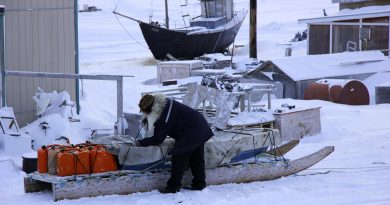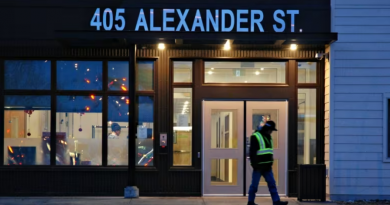Woman found sleeping outdoors near Iqaluit store highlights homelessness in Nunavut’s capital

Word that an elderly Iqaluit woman was found sleeping last week on the hard pavement outside the doors of Iqaluit’s Northmart store comes as no surprise to Janet Pitsiulaaq Brewster, one of the Nunavut capital’s four MLAs.
Witnessing homelessness is inescapable around the city of about 8,000, Brewster said.
“We see it every day,” she said. “The number of people falling into homelessness in Iqaluit over the last couple of decades has become impossible to ignore.”
That’s especially true over the summer months when the weather is warm enough for people to gather outdoors in groups and for longer periods of time, she said.
“I wouldn’t say personally that I want to escape the situation,” Brewster said. “As a formerly homeless person, as a youth and a young mother, my caring and wish is for the homeless to escape their situation. I know it’s possible. Wrapping around them and removing barriers is what we must do.”
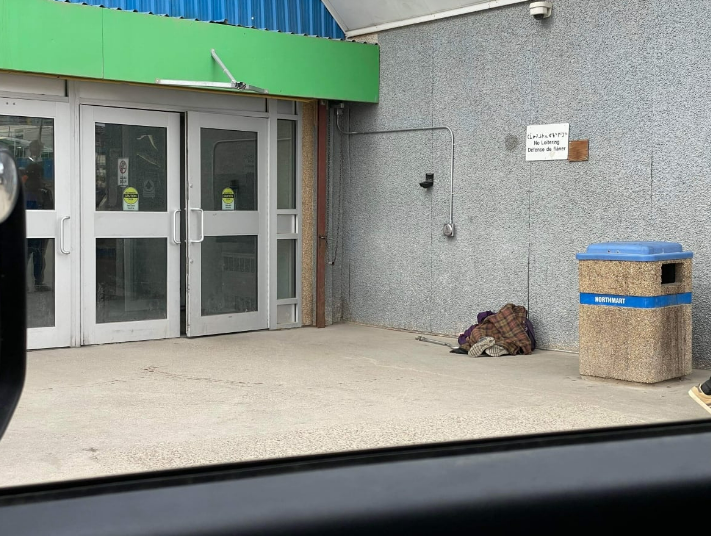
Neevee Laisa was seen sleeping outside Iqaluit’s downtown Northmart last week in the early morning, where she had curled up on the concrete next to her cane.
Laisa said she had a medical condition that makes it difficult to find a place to sleep because the city’s wet shelter only is open from 8 p.m. to 8 a.m. when she and others must leave.
Laisa was seen lying outside the Northmart at about 8:45 a.m.
She said that being homeless and disabled, she has no choice.
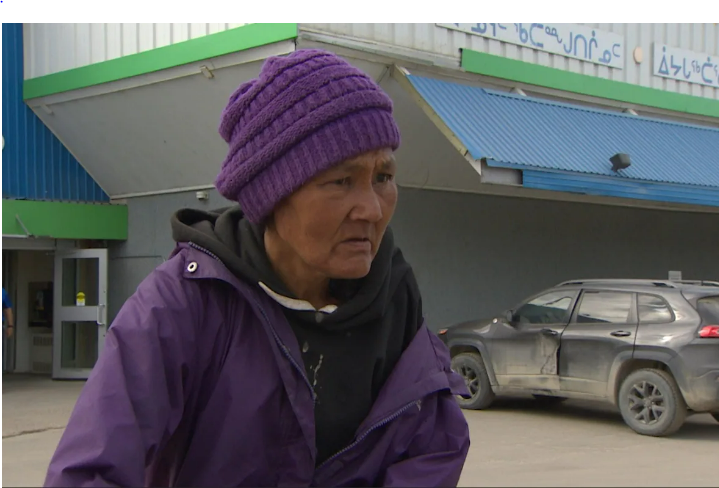
“My medications are really strong. That’s why I sleep,” she said in Inuktitut. “My pills are relaxants.”
Finding a place to call home is not easy, Laisa said.
She said she applied for public housing but the waitlist was too long.
The winter months are the hardest, she said.
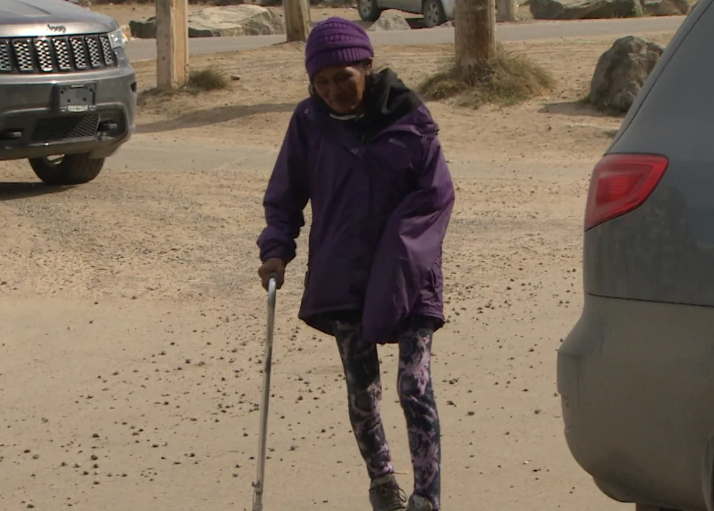
Then she goes to public places to rest and warm up.
“I would really like my own place. I’m tired of being homeless,” Laisa said. “Now I want to cry. I don’t wanna cry.”
More supports needed
Brewster, a former deputy mayor of Iqaluit, has repeatedly raised the issue of homelessness and the need for more addictions and mental health supports in municipal council and, following the 2021 territorial election, in the Nunavut legislature.
She said evicting residents from shelters or couches early in the morning doesn’t help the situation.
“When there’s nothing to do, no place to go and limited access to hygiene, housing support and health services, [this] means that they must rely on accessing public spaces to rest, warm up and get through the day,” she said.
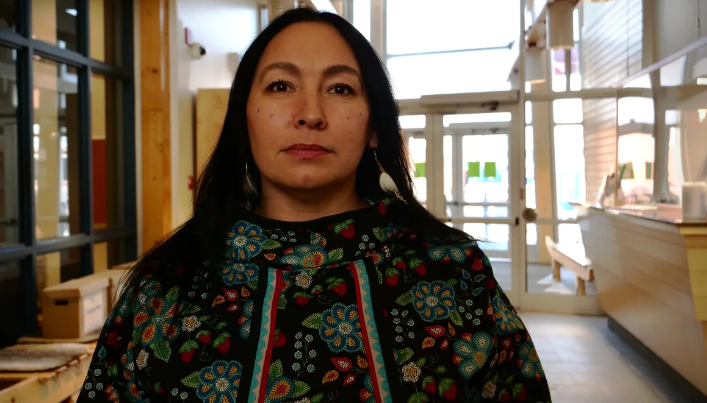
Access to safe, clean water — something Iqaluit continues to struggle with— as well as sanitation, is globally recognized as essential for public health, but this is also lacking in Nunavut’s capital, she said.
“Iqaluit needs more accessible and clean washrooms, which are essential for public health and dignity, and also necessary for local businesses and families to thrive,” Brewster said.
Unsheltered people also need routine as much as anyone, Brewster said, so their days can follow whatever familiar patterns and survival strategies they’ve created for themselves.
Day shelters and a comprehensive program for homeless and near homeless people are important to addressing and preventing these issues around the city’s safety, Brewster said.
Those needs came to the forefront during the 2021 territorial election when a women’s group launched a sign campaign to make their Iqaluit neighbourhood safer. Their campaign followed a summer filled with incidents around the beach and downtown core, some involving people with no homes to return to in the city.
“Too many residents and businesses have been impacted by safety issues in areas where people have normalized public drinking and other anti-social behaviour,” said Brewster.
As for applying for public housing, that can be challenging for the homeless to obtain.
A long wait for housing
In an email to CBC the Nunavut Housing Corp. wrote the local housing organization (LHO) run by a point-based rating system and “each LHO has the ability to choose additional ranking criteria, such as impacts on health or disability status.”
But in Iqaluit, the housing association requires applicants to update and reconfirm their applications on an ongoing basis, Brewster noted.
This may be difficult for more vulnerable people who do not have access to transportation to the office, or who may have addictions or other issues that make it difficult to maintain their spots on the housing list or have their points-based priority reassessed, she said.
“The process needs to be simplified and more transparent,” Brewster said
“Applicants are usually denied knowledge of where they are on the list and approximately how long they will have to wait for housing. They can be removed from the list without their knowledge if they do not have a telephone or access to emails, and have to start the process from the beginning if that occurs. ”
Laisa is not the first to seek out the centrally located store for open-air shelter.
In July 2009, two boys, one wearing shorts, were trying to stay warm as they slept on the pavement surrounded by cigarette butts and litter. Their mother later explained she was heartbroken and humiliated by the incident.
Larry Fortes, a director of operations for the North West Company, which owns Northmart, told CBC that if anyone at the store spotted a sleeping person, “We would politely wake the person and assess the situation.
“If necessary, we would contact the right people to provide her with help, such as the bylaw officer.”
Related stories from around the North:
Canada: Nunavut seeking solutions for 90 unfilled teaching positions, CBC News
Finland: Police response times up to an hour slower in Arctic Finland, Yle News
Greenland: Greenland to reduce services amidst staffing shortages in health care system, Eye on the Arctic
United States: Violence Against Women bill would expand power of up to 30 Alaska tribal courts, Alaska Public Media

